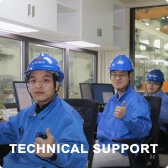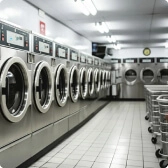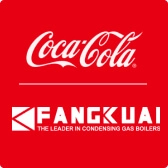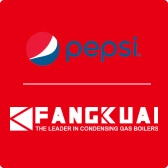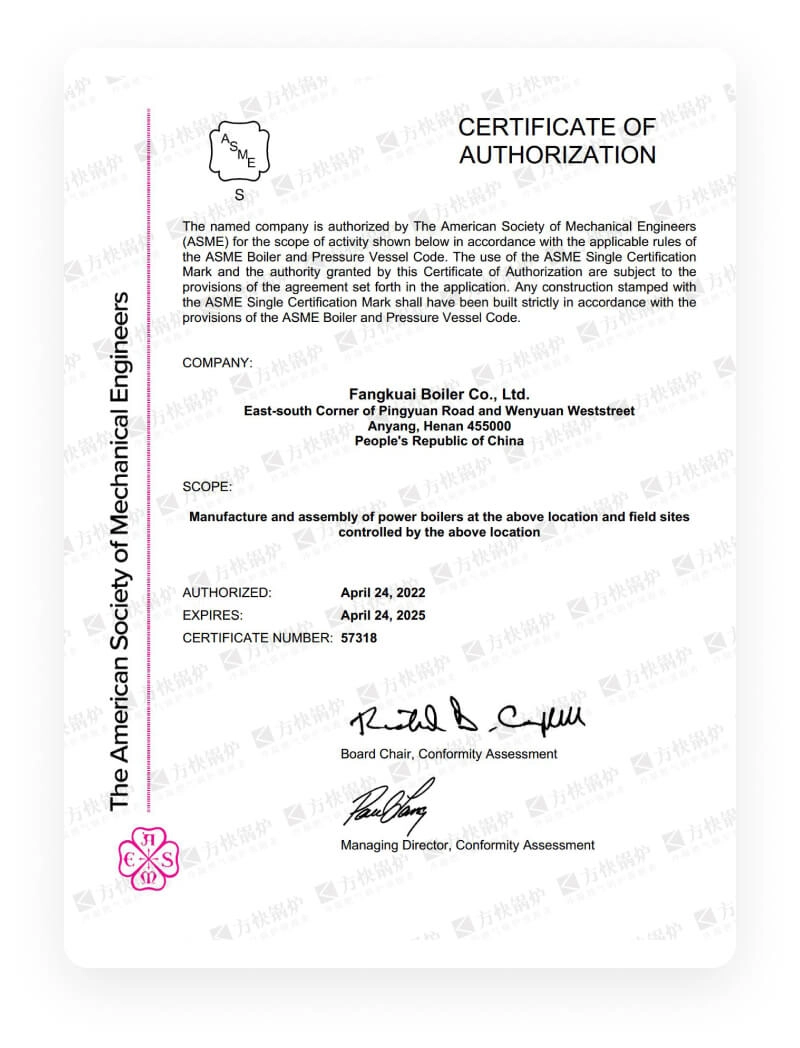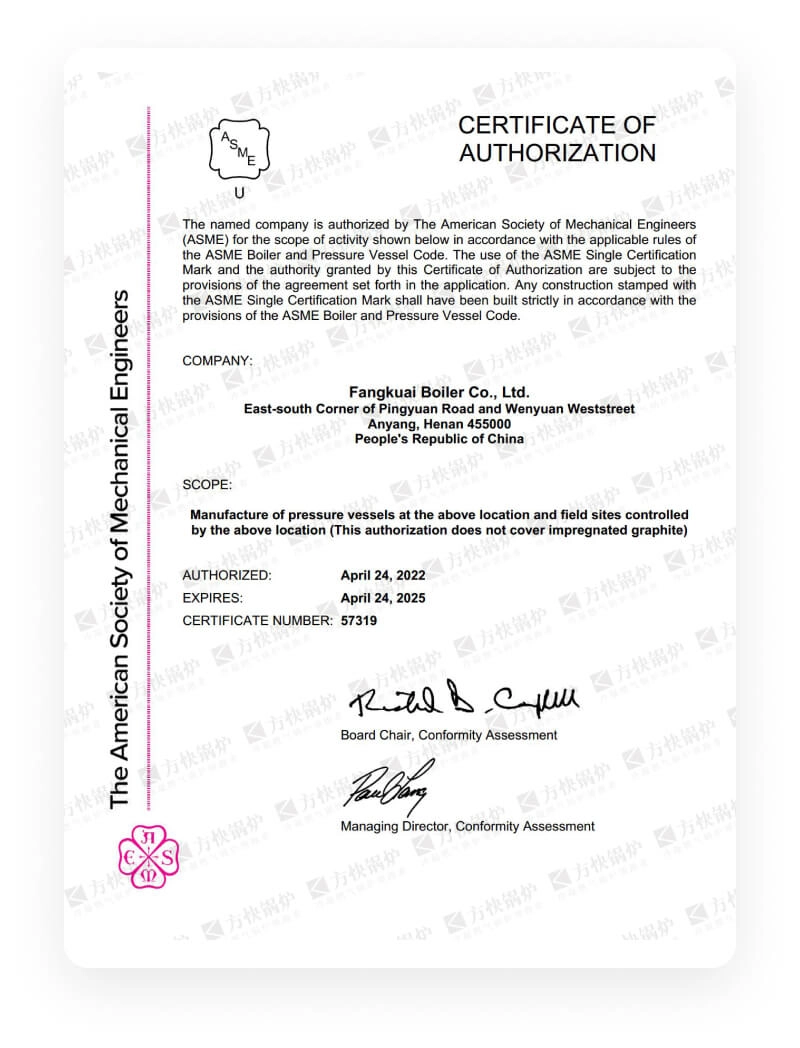Unraveling the Mystery: Why Boiler Efficiency Can Exceed 100%
date: 2024-09-04
Page preview: 49
Introduction
Have you ever heard of a boiler's thermal efficiency exceeding 100%? It may sound like a perplexing concept, defying the laws of physics. How is it possible for a system to achieve more than full efficiency in converting fuel into heat energy? In this blog post, we delve into the intriguing phenomenon of boilers exhibiting thermal efficiency greater than 100%. By exploring the underlying factors and principles at play, we aim to unravel the mystery behind this seemingly impossible occurrence. Join us on this journey through the realms of energy conversion and efficiency optimization in the world of boilers. Let's uncover the truth behind this fascinating anomaly and gain a deeper understanding of the complexities of thermal efficiency in boiler systems. So, buckle up and prepare to explore the unexpected in the realm of energy efficiency!

Understanding Boiler Efficiency
When it comes to assessing the efficiency of a boiler, it's crucial to grasp the fundamental principles that govern its performance. Boiler efficiency serves as a metric for evaluating how effectively the system converts fuel into usable heat energy. By understanding this metric, we can gain insights into the effectiveness of the boiler in fulfilling its intended purpose. The efficiency of a boiler is typically expressed as a percentage, indicating the proportion of fuel energy that is successfully converted into heat energy.
Factors Influencing Boiler Efficiency
To comprehend the intricacies of boiler efficiency, it's essential to consider the various factors that play a role in determining its effectiveness. These factors encompass combustion efficiency, heat transfer efficiency, and system losses. Combustion efficiency pertains to how efficiently fuel is burned and converted into heat energy within the boiler. It is influenced by factors such as the fuel-air ratio, completeness of combustion, and minimizing unburned fuel and combustion by-products.
1. Combustion Efficiency
One of the key factors influencing boiler efficiency is combustion efficiency. This aspect focuses on the effectiveness of the combustion process in converting fuel into heat energy. Factors such as the correct fuel-air ratio, complete combustion of fuel, and the reduction of unburned fuel and combustion by-products contribute to enhancing combustion efficiency. Optimizing this factor plays a significant role in improving overall boiler performance and efficiency.
2. Heat Transfer Efficiency
Another critical factor in determining boiler efficiency is heat transfer efficiency. This aspect pertains to how effectively heat is transferred from the combustion gases to the water or steam within the boiler. Factors such as the design of the heat exchanger, surface area for heat transfer, and temperature differentials impact the efficiency of heat transfer. Enhancing heat transfer efficiency is essential for maximizing the utilization of heat energy generated during the combustion process.
Factors Influencing Boiler Efficiency
When it comes to the efficiency of a boiler system, various factors play a crucial role in determining how effectively fuel is converted into heat energy. Understanding these factors can shed light on why a boiler's thermal efficiency may exceed 100%. Let's delve into the key influencers shaping boiler efficiency:
-
Combustion Efficiency: The way in which fuel is burned and transformed into heat energy significantly impacts the overall efficiency of a boiler. Factors such as maintaining the correct fuel-air ratio, ensuring complete combustion, and minimizing unburned fuel and combustion by-products all contribute to optimizing combustion efficiency.
-
Heat Transfer Efficiency: Another critical aspect influencing boiler efficiency is how effectively heat is transferred from the combustion gases to the water or steam in the system. The design of the heat exchanger, the surface area available for heat transfer, and the temperature variance between the hot gases and the water or steam all play a role in determining heat transfer efficiency.
-
System Losses: System losses, resulting from factors like radiation, conduction, and incomplete combustion, can lead to a reduction in the overall efficiency of a boiler system. Identifying and minimizing these losses is essential for maximizing the efficiency of the system and ensuring that energy is utilized effectively.
1. Combustion Efficiency
When it comes to the efficiency of combustion in a boiler, the key factor to consider is how effectively the fuel is burned and converted into heat energy. This process plays a critical role in determining the overall thermal efficiency of the system. Achieving high combustion efficiency involves maintaining the proper fuel-to-air ratio, ensuring complete combustion of the fuel, and minimizing the presence of unburned fuel and combustion byproducts. By optimizing these combustion parameters, boilers can enhance their efficiency and maximize the utilization of the fuel's energy content.
-
Proper Fuel-to-Air Ratio: The ideal combustion process requires a precise balance between the amount of fuel and air supplied to the boiler. Deviations from this optimal ratio can lead to incomplete combustion, resulting in energy losses and reduced efficiency. By carefully controlling the fuel-to-air ratio, boiler operators can improve combustion efficiency and minimize wastage of fuel resources.
-
Complete Combustion: Complete combustion is essential for maximizing the heat energy released during the burning of fuel. Incomplete combustion can result in the formation of harmful pollutants and the loss of energy stored in the fuel. By ensuring thorough mixing of fuel and air, maintaining adequate temperature levels, and providing sufficient oxygen supply, boilers can achieve complete combustion and enhance their efficiency.
-
Minimizing Unburned Fuel and Combustion Byproducts: The presence of unburned fuel and combustion byproducts in the flue gas indicates inefficiencies in the combustion process. These residues represent wasted energy that could have been utilized to generate heat. Through proper burner maintenance, regular cleaning of combustion chambers, and optimizing operational parameters, boilers can reduce the accumulation of unburned fuel and combustion byproducts, thereby improving combustion efficiency.
In summary, combustion efficiency is a crucial aspect of boiler operation that directly impacts the system's thermal efficiency. By focusing on factors such as the fuel-to-air ratio, complete combustion, and minimizing unburned fuel and combustion residues, boilers can optimize their performance and achieve higher levels of energy conversion. Through continuous monitoring, maintenance, and optimization of combustion processes, operators can enhance the efficiency of boilers and contribute to energy savings and environmental sustainability.
2. Heat Transfer Efficiency
When it comes to boiler efficiency, heat transfer efficiency plays a crucial role in determining how effectively heat is transferred from the combustion gases to the water or steam in the system. The design of the heat exchanger, the surface area available for heat exchange, and the temperature variance between the hot gases and the water or steam are key factors influencing this efficiency. By optimizing these elements, boilers can enhance their overall performance and energy conversion capabilities.
Moreover, maximizing heat transfer efficiency is essential for ensuring that the heat generated during combustion is effectively utilized to heat water or produce steam. Efficient heat transfer mechanisms help minimize energy losses and improve the overall thermal performance of the boiler system. By focusing on enhancing heat transfer processes, engineers and operators can optimize the energy conversion process and increase the system's efficiency.
A well-designed heat exchanger is instrumental in facilitating efficient heat transfer within the boiler system. The heat exchanger's configuration, material properties, and surface area all impact the effectiveness of heat transfer. Through innovative design and engineering advancements, modern boilers can achieve higher heat transfer efficiencies, leading to improved overall system performance and energy utilization.
In conclusion, heat transfer efficiency plays a vital role in determining the overall efficiency and effectiveness of boiler systems. By prioritizing the optimization of heat transfer processes, operators can enhance energy conversion capabilities, reduce energy losses, and improve the system's overall performance. Investing in innovative heat exchanger designs and technologies can pave the way for increased efficiency and sustainability in boiler operations.
3. System Losses
Understanding System Losses
System losses play a crucial role in determining the overall efficiency of a boiler system. These losses occur due to various factors within the system, such as radiation, conduction, and incomplete combustion. While combustion efficiency and heat transfer efficiency focus on optimizing energy conversion processes, system losses highlight areas where energy is dissipated or not fully utilized. Understanding and minimizing these losses are essential for enhancing the overall efficiency of the boiler.
Impact of Radiation and Conduction
Radiation and conduction losses occur when heat is transferred from the boiler to its surroundings through electromagnetic waves or direct contact. These losses can result in a decrease in the heat transfer efficiency of the system, leading to a reduction in the overall thermal efficiency. By insulating the boiler and minimizing heat transfer through radiation and conduction, it is possible to mitigate these losses and improve the system's performance.
Addressing Incomplete Combustion
Incomplete combustion is another significant factor contributing to system losses in a boiler. When fuel is not burned completely, unburned fuel and combustion by-products are released into the atmosphere, wasting valuable energy potential. By optimizing the combustion process, ensuring proper air-fuel ratio, and maintaining combustion stability, it is possible to reduce incomplete combustion and enhance the overall efficiency of the boiler system.
Importance of System Optimization
System losses underscore the importance of holistic optimization in a boiler system. While focusing on combustion efficiency and heat transfer efficiency is essential, addressing system losses completes the picture of energy utilization. By identifying areas of energy wastage, implementing energy-saving measures, and continuously monitoring system performance, it is possible to achieve higher levels of efficiency and sustainability in boiler operations.
Conclusion on System Losses
In conclusion, system losses represent a critical aspect of boiler efficiency that requires attention and optimization. By understanding the impact of radiation, conduction, and incomplete combustion on energy utilization, operators can make informed decisions to improve system performance. Minimizing system losses through insulation, combustion optimization, and comprehensive system management is key to enhancing the overall efficiency and sustainability of boiler operations. Remember, every bit of energy saved contributes to a more efficient and environmentally friendly boiler system.
Theoretical Limitations - Second Law of Thermodynamics
When considering the thermal efficiency of a boiler surpassing 100%, it is crucial to delve into the realm of thermodynamics, specifically the Second Law of Thermodynamics. This fundamental law presents a theoretical limitation on the efficiency of heat engines, including boilers, known as the Carnot efficiency. The Carnot efficiency signifies the maximum efficiency achievable by any heat engine and is determined by the temperature differential between the hot and cold reservoirs.
In accordance with the principles of thermodynamics, the Carnot efficiency acts as a fundamental boundary that no heat engine can surpass. This limitation arises from the inherent nature of energy conversion processes and the unavoidable presence of losses. The efficiency of a boiler is inherently constrained by the laws of thermodynamics, indicating that achieving a thermal efficiency greater than the Carnot efficiency, and by extension 100%, is highly improbable.
To comprehend the implications of the Second Law of Thermodynamics on boiler efficiency, it is essential to grasp the significance of temperature differentials and energy conversion limitations. The Carnot efficiency serves as a pivotal benchmark in evaluating the performance of heat engines and elucidates the constraints imposed by energy conservation laws. By acknowledging these theoretical foundations, one can appreciate the complexities involved in optimizing boiler efficiency and the inherent limitations that prevent surpassing 100%.
In summary, the Second Law of Thermodynamics establishes clear boundaries on the efficiency of heat engines like boilers, barring the possibility of achieving efficiencies greater than 100%. The theoretical framework provided by the Carnot efficiency underscores the fundamental principles governing energy conversion processes and serves as a guiding principle in understanding the limits of thermal efficiency. As we navigate the intricate landscape of energy systems, these foundational principles remind us of the immutable laws that govern the conversion of fuel into useful work in boiler operations.
Claims and Discussions
Have you ever come across claims or discussions about a boiler's thermal efficiency surpassing the 100% mark? It's a topic that sparks curiosity and challenges our understanding of energy conversion. Such assertions may seem perplexing, as traditional physics dictates that efficiency cannot exceed 100%. However, before dismissing these claims as impossible, let's delve deeper into the intricacies of boiler systems and energy dynamics to unravel the truth behind this intriguing phenomenon.
Exploring the realm of thermal efficiency exceeding 100% opens up a realm of possibilities and challenges conventional wisdom. By examining the various factors that influence boiler efficiency, we can gain insights into the complex interplay of combustion processes, heat transfer mechanisms, and system losses. Through a critical analysis of these elements, we can uncover the underlying reasons that may lead to thermal efficiency readings that defy conventional expectations.
Debates surrounding the thermal efficiency of boilers exceeding 100% often provoke discussions on the boundaries of energy conservation laws and the practical implications of such occurrences. It's essential to approach these claims with a blend of skepticism and curiosity, seeking to understand the scientific principles at play. By engaging in informed discussions and exploring the nuances of energy conversion in boiler systems, we can shed light on the factors that contribute to seemingly anomalous efficiency readings.
As we navigate through the realm of claims and discussions regarding boiler efficiency, it's crucial to maintain a balanced perspective and consider the broader context of energy conservation and thermodynamic principles. While the idea of a boiler's thermal efficiency surpassing 100% may challenge conventional beliefs, a deeper exploration of the underlying factors can provide clarity and insights into the complexities of energy conversion processes. By approaching these discussions with an open mind and a thirst for knowledge, we can unravel the mysteries and misconceptions surrounding this intriguing phenomenon.
In conclusion, the claims and discussions surrounding a boiler's thermal efficiency exceeding 100% serve as a fascinating avenue for exploring the intricacies of energy conversion and efficiency optimization. By delving into the factors that influence boiler efficiency and analyzing the implications of such claims, we can deepen our understanding of the complexities of energy systems. Through critical thinking and informed discourse, we can navigate the nuances of thermal efficiency anomalies and appreciate the intersection of physics, engineering, and energy conservation in the realm of boiler operations.
Analyzing the Phenomenon
Let's delve deeper into the perplexing phenomenon of boilers exhibiting thermal efficiency greater than 100%. While it may seem like a violation of the laws of physics, there are specific factors and principles at play that contribute to this intriguing occurrence. By analyzing the underlying mechanisms, we can uncover the truth behind this seemingly impossible scenario and gain a better understanding of the intricacies of boiler efficiency optimization.
Energy recovery technologies play a pivotal role in the phenomenon of boilers surpassing 100% thermal efficiency. Technologies such as condensation play a crucial part in recovering energy that would otherwise be lost in the form of steam in the exhaust gases. By condensing the water vapor in the exhaust gases, these technologies recover latent heat, effectively boosting the overall efficiency of the boiler system. This energy recovery process contributes to the calculation of thermal efficiency, leading to results that exceed the traditional 100% limit.
Furthermore, the method of calculating thermal efficiency plays a significant role in the phenomenon at hand. While traditional calculations are based on the lower heating value of the fuel, incorporating the recovered latent heat from condensation can result in a total heat input that exceeds the conventional baseline. This adjusted calculation method, considering the total heat input including latent heat recovery, can lead to thermal efficiency values greater than 100%, showcasing the impact of calculation methodology on perceived efficiency levels.
In addition to energy recovery technologies and calculation methods, the comprehensive application of efficient combustion and energy-saving technologies contributes to the phenomenon of boilers achieving thermal efficiency beyond 100%. Optimizing combustion processes, improving combustion efficiency, and minimizing heat losses are essential aspects of enhancing boiler efficiency. By integrating these technologies, the overall efficiency of the boiler system is elevated, further accentuating the potential for thermal efficiency values that surpass the conventional limits. This holistic approach to efficiency enhancement underscores the multifaceted nature of achieving optimal boiler performance.
Explanation of the Factors
When it comes to understanding why a boiler's thermal efficiency can surpass 100%, we need to delve into the intricate dynamics of energy recovery technologies. One key factor contributing to this phenomenon is the adoption of innovative techniques like condensing technology. By employing specialized components such as condensers, these technologies can capture the latent heat present in exhaust gases, particularly the water vapor. Through the condensation process, the water vapor is transformed back into liquid form, allowing the recovery of the latent heat that would otherwise be lost. This reclaimed energy is then factored into the calculation of the boiler's thermal efficiency, thereby leading to a result exceeding 100%.
Furthermore, the calculation methods utilized play a crucial role in potentially yielding a thermal efficiency greater than 100% in boilers. Unlike traditional calculations based on the lower heating value of the fuel, modern approaches may consider the total heat content, including the latent heat of vaporization. This shift in methodology accounts for the recovered latent heat through condensation or other energy recovery techniques, thereby influencing the calculated thermal efficiency. As a result, even if the actual energy conversion efficiency remains within feasible limits, the different calculation approach can skew the outcome to appear above 100%.
In addition to energy recovery technologies and calculation methods, the comprehensive application of efficient combustion and energy-saving technologies also contributes to the intriguing phenomenon of boilers exceeding 100% thermal efficiency. By optimizing combustion processes, enhancing combustion efficiency, and minimizing heat losses, boilers can operate more efficiently and effectively. These advancements, when combined with other energy-saving measures, create a synergistic effect that elevates the overall thermal efficiency of the system. It is the integration of these diverse factors that culminates in the exceptional achievement of thermal efficiency surpassing 100% in boilers under specific conditions.
In conclusion, the enigmatic scenario of boilers exhibiting thermal efficiency greater than 100% is a fascinating interplay of various factors. From the utilization of energy recovery technologies like condensation to the adjustment of calculation methods considering latent heat, and the implementation of efficient combustion and energy-saving practices, each element contributes to this intriguing outcome. While it may initially defy conventional expectations, a deeper exploration reveals that these factors work harmoniously to maximize the energy conversion process within boiler systems. This anomaly serves as a testament to the advancements in energy efficiency technologies and the innovative strategies employed to optimize thermal performance.
1. Energy Recovery Technologies
Have you ever wondered how a boiler's thermal efficiency could surpass the 100% mark? The answer lies in the innovative realm of energy recovery technologies. One key player in this phenomenon is the adoption of condensing technology. Traditional boiler combustion processes release exhaust gases containing significant amounts of water vapor. When these gases are expelled into the atmosphere, they carry away a portion of heat known as latent heat of vaporization. However, with the incorporation of condensing technology, these water vapors can be condensed back into liquid form, allowing for the recovery of this latent heat. By reclaiming energy that would otherwise be lost, the thermal efficiency calculation of a boiler can surpass 100%, showcasing the power of energy recovery technologies in maximizing efficiency.
The utilization of energy recovery technologies opens up a world of possibilities for enhancing boiler performance. By implementing specific designs, such as additional condensers, the latent heat of vaporization present in exhaust gases can be harnessed and utilized effectively. This strategic approach not only boosts the overall thermal efficiency of the boiler but also highlights the transformative impact of energy recovery mechanisms in optimizing energy utilization. Through the integration of these advanced technologies, boilers can operate at levels previously deemed unattainable, pushing the boundaries of efficiency and sustainability in the energy sector.
Furthermore, the calculation methods employed in assessing boiler efficiency play a significant role in understanding the phenomenon of thermal efficiency exceeding 100%. While traditional calculations often rely on the lower heating value of fuel as the baseline, the inclusion of latent heat in total heat content can lead to results surpassing the theoretical limit. In practical terms, this means that even if the actual energy conversion efficiency of the boiler remains below 100%, the inclusion of recovered latent heat in the calculation can yield efficiency values exceeding the conventional threshold. This nuanced approach to calculation showcases the intricate interplay between energy recovery technologies and calculation methodologies in determining boiler efficiency metrics.
In essence, the integration of energy recovery technologies represents a groundbreaking advancement in the realm of boiler efficiency. By harnessing the power of condensing technology and reaping the benefits of recovered latent heat, boilers can achieve thermal efficiency levels that defy conventional expectations. The synergy between innovative design solutions, efficient energy utilization, and meticulous calculation methodologies paves the way for a new era of energy efficiency in boiler systems. Stay tuned as we delve deeper into the realm of comprehensive application of efficient combustion and energy-saving technologies to unravel the complexities of thermal efficiency exceeding 100% in boilers. Get ready to explore the forefront of energy innovation and unlock the secrets behind this captivating anomaly.
2. Calculation Methods
When it comes to determining the thermal efficiency of a boiler, the calculation methods employed play a crucial role in understanding the phenomenon of efficiency exceeding 100%. Traditional calculations often rely on the lower heating value of the fuel as a reference point. This value represents the heat released when the fuel undergoes complete combustion, excluding the latent heat of vaporization present in the combustion products. However, with the adoption of energy recovery technologies like condensing systems, the calculation approach may shift. These technologies recover the latent heat of vaporization from the combustion products, influencing the total heat content used as the basis for efficiency calculations.
The utilization of calculation methods incorporating the recovered latent heat can lead to the apparent thermal efficiency of the boiler exceeding 100%. By considering the total heat content post-recovery, the efficiency calculation reflects the additional energy harnessed through the condensing process. While the actual energy conversion efficiency does not surpass 100%, the revised calculation methodology accounts for the enhanced heat recovery, showcasing a percentage value that exceeds the traditional limits. This nuanced approach highlights the importance of understanding the intricacies of energy recovery mechanisms in accurately assessing boiler performance.
In essence, the deviation of thermal efficiency results above 100% can be attributed to the shift in calculation methods influenced by energy recovery technologies. The integration of condensing systems and similar advancements alters the traditional efficiency evaluation, showcasing the impact of enhanced heat recovery. As a result, the calculated efficiency value may surpass the conventional expectations, offering insights into the comprehensive utilization of recovered energy in boiler operations. Understanding the interplay between calculation methodologies and energy recovery mechanisms is key to unraveling the complexities of boiler efficiency evaluations.
In conclusion, the calculation methods applied in determining boiler thermal efficiency serve as a pivotal factor in comprehending instances where efficiency exceeds 100%. The adoption of innovative approaches that consider the recovered latent heat from combustion products provides a more holistic view of energy utilization in boilers. By acknowledging the influence of energy recovery technologies on efficiency calculations, we gain a deeper insight into the potential for surpassing traditional efficiency limits. The evolution of calculation methods underscores the dynamic nature of energy efficiency assessments and the importance of adapting to advancements in the field.
3. Comprehensive Application of Efficient Combustion and Energy-Saving Technologies
When it comes to optimizing boiler efficiency, a key aspect lies in the comprehensive application of efficient combustion and energy-saving technologies. By implementing advanced techniques and innovative approaches, such as optimizing the combustion process and minimizing heat losses, significant improvements in thermal efficiency can be achieved. These technologies play a crucial role in enhancing the overall performance of boilers and maximizing energy utilization. Through a combination of smart engineering solutions and cutting-edge innovations, the efficiency of boiler systems can be greatly enhanced, leading to more sustainable and cost-effective operations.
In the pursuit of maximizing boiler efficiency, a holistic approach that integrates various energy-saving strategies is essential. From utilizing advanced control systems to implementing heat recovery technologies, each component plays a vital role in enhancing the performance of boiler systems. By focusing on the synergistic effects of different energy-saving technologies, operators can achieve a balanced and sustainable approach to improving efficiency. This comprehensive application of efficient combustion and energy-saving technologies not only optimizes energy utilization but also contributes to reducing environmental impact and promoting sustainable practices in the industry.
Moreover, the integration of energy-efficient technologies in boiler systems is a testament to the continuous advancements in the field of energy engineering. From intelligent monitoring systems to innovative heat exchanger designs, the evolution of energy-saving technologies has revolutionized the way we approach energy utilization in industrial processes. By embracing these cutting-edge solutions, operators can not only boost the efficiency of their boiler systems but also pave the way for a more sustainable and environmentally friendly approach to energy production. The comprehensive application of efficient combustion and energy-saving technologies represents a significant step towards achieving optimal energy efficiency and promoting a greener future for generations to come.
In conclusion, the comprehensive application of efficient combustion and energy-saving technologies is vital for enhancing the thermal efficiency of boiler systems. By adopting a holistic approach that combines innovative solutions and advanced techniques, operators can unlock new levels of efficiency and sustainability in their operations. As we continue to embrace the latest advancements in energy engineering, the future holds promising opportunities for optimizing energy utilization and reducing environmental impact. Let's embrace the power of innovation and efficiency to drive towards a more sustainable and energy-efficient future.
Conclusion
In conclusion, the concept of a boiler's thermal efficiency exceeding 100% may seem perplexing and even contradictory at first glance. However, through our exploration of the various factors influencing boiler efficiency, including combustion efficiency, heat transfer efficiency, and system losses, we have uncovered the intricate mechanisms at play. While the theoretical limitations imposed by the Second Law of Thermodynamics may suggest otherwise, advancements in energy recovery technologies, calculation methods, and the comprehensive application of efficient combustion and energy-saving technologies have paved the way for boilers to achieve super-efficiency levels. By analyzing the phenomenon from a scientific perspective and providing plausible explanations for this anomaly, we have shed light on the complexities of thermal efficiency in boiler systems. This journey through the realms of energy conversion and efficiency optimization has allowed us to gain a deeper understanding of the potential for exceeding traditional efficiency boundaries. As we continue to push the boundaries of energy efficiency, let us embrace the unexpected and embrace the possibilities that lie ahead in the realm of boiler technology.


